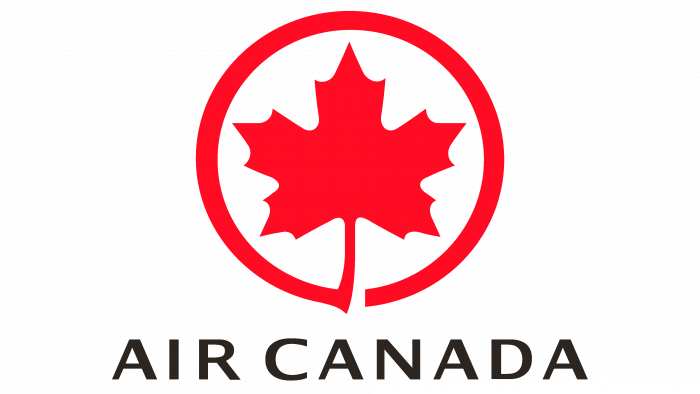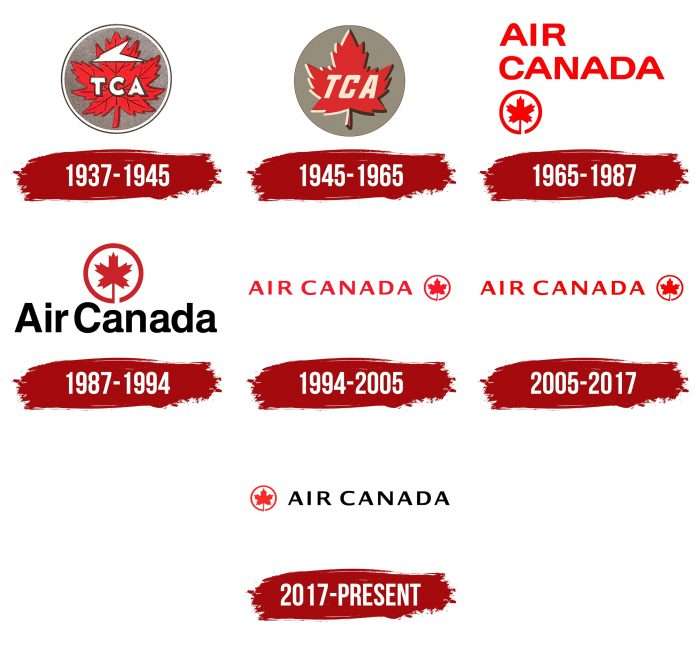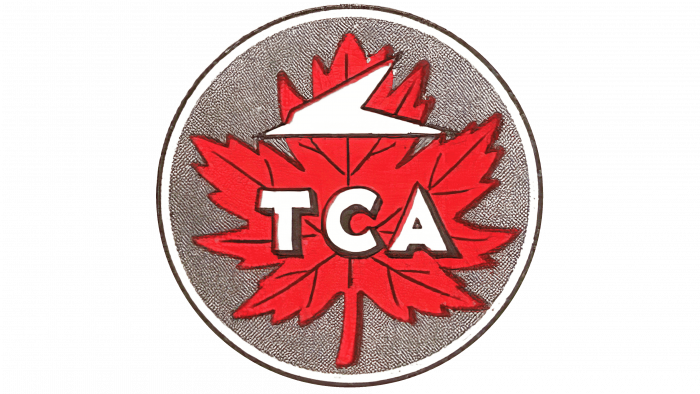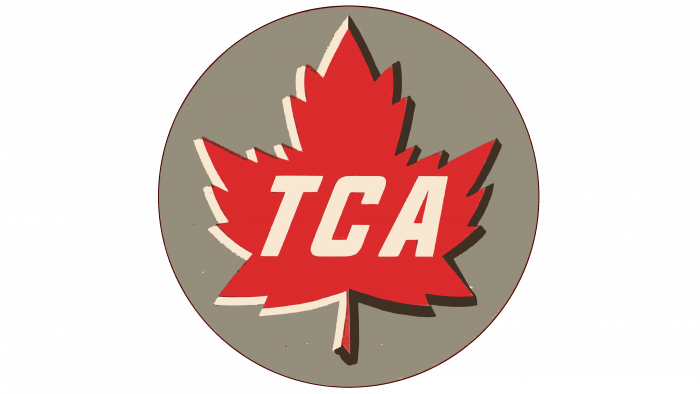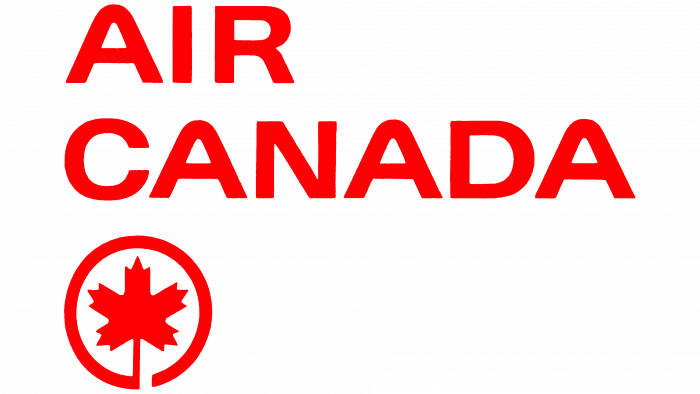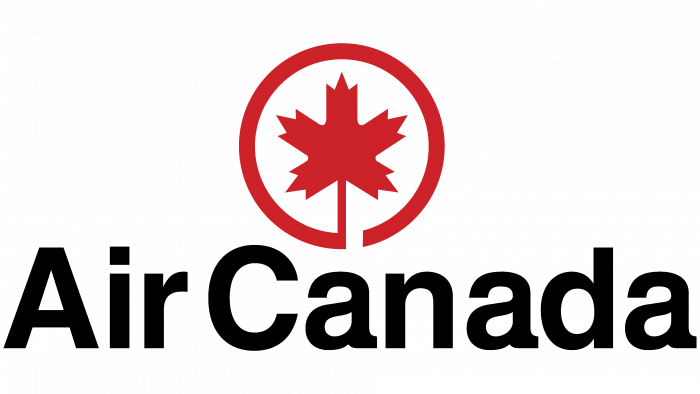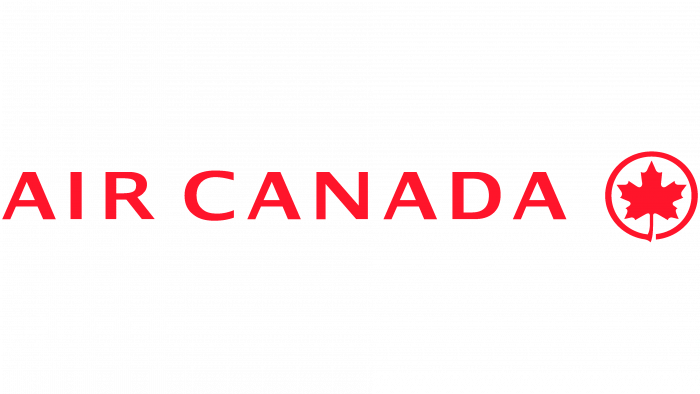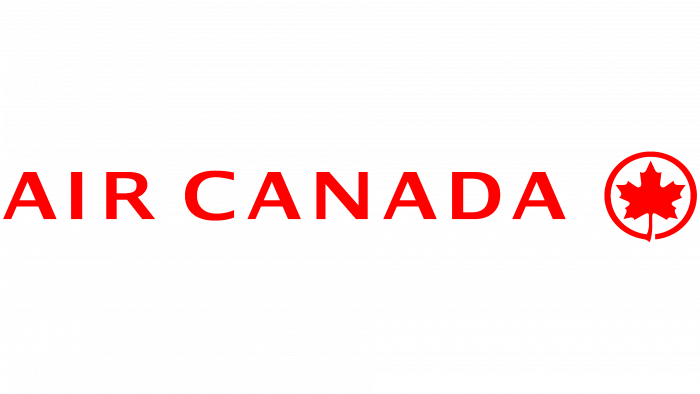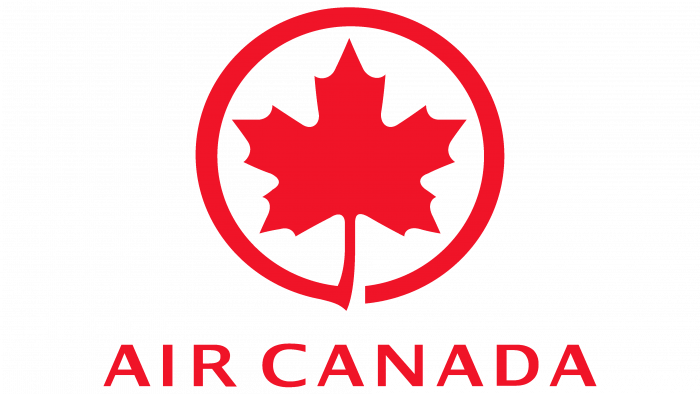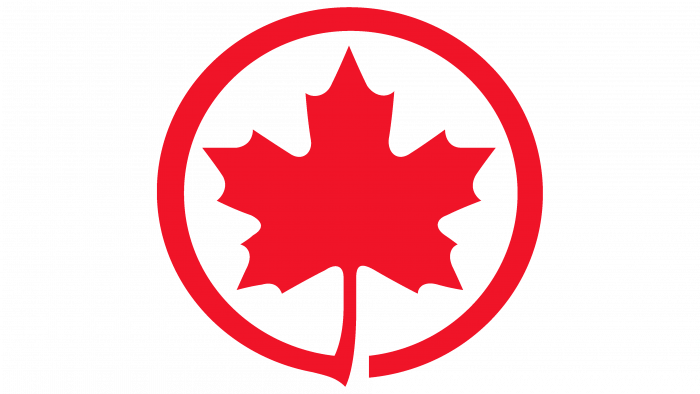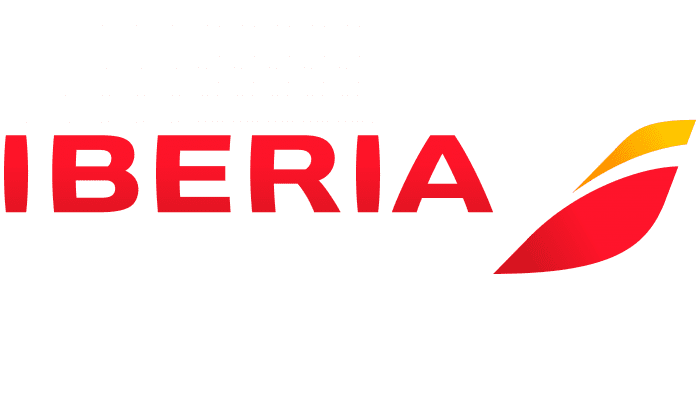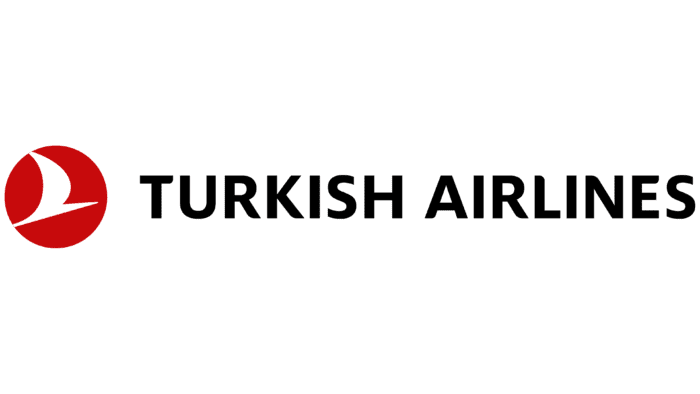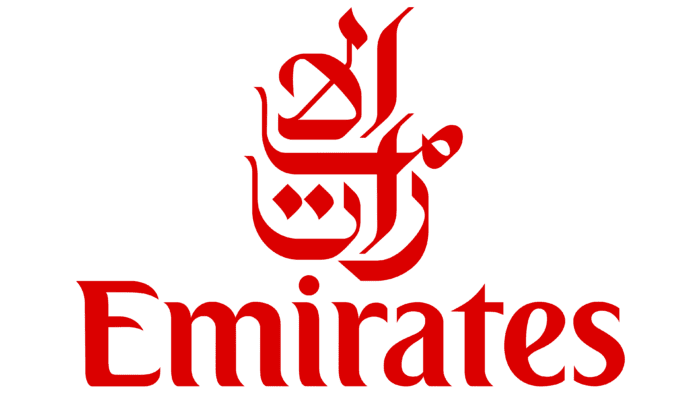Canada’s airspace, from which airplanes depart in different directions, is encoded in the symbols of the Air Canada emblem. The emblem demonstrates the love for one’s country and the desire to expand the borders for its citizens.
Air Canada: Brand overview
In 1937, the Canadian government established Trans-Canada Air Lines (TCA), which later became Air Canada, to offer air service nationwide. Initially, TCA operated domestic flights connecting major Canadian cities. The first passenger flight from Vancouver to Seattle was completed on September 1, 1938. This was followed by regular flights between Montreal and Vancouver, connecting the eastern and western coasts. During World War II, TCA supported the war effort by transporting armed forces. After the war, TCA expanded its operations and introduced transatlantic flights to Europe.
1953, the company became the first Canadian airline to use turboprop aircraft on domestic routes. By 1958, TCA was operating jet aircraft on transcontinental flights, marking the entry into the jet age.
The airline officially changed its name to Air Canada on January 1, 1965, reflecting its growing international presence and a desire for a more modern image. In the following decades, the brand significantly grew its international network, adding destinations in Europe, Asia, and the Caribbean. The company modernized its fleet by acquiring Boeing 747s for long-haul flights. The Canadian government began privatizing the airline in 1988, and it was completed in 1989. Facing increased competition, the brand expanded its global reach by opening new routes to Asia and South America in the 1990s.
In 2003, the company filed for bankruptcy protection due to financial challenges following the September 11, 2001, terrorist attacks and an economic downturn. After restructuring, the brand emerged from bankruptcy protection in 2004 and began renewing its fleet with new Boeing 777 and 787 Dreamliners.
In 2013, the airline launched a low-cost subsidiary, Air Canada Rouge, to target the leisure and tourism market, while the main brand focused on the premium segment. From 2016 to 2019, the company continued to expand its route network and invested in enhancing the passenger experience with new technologies and improved onboard service.
Like the rest of the aviation industry, the brand faced unprecedented challenges in 2020 due to the global pandemic. The company adapted its operations to the changing market conditions, prioritizing liquidity and preparing for market recovery.
Meaning and History
Air Canada underwent several transformations before becoming a world-renowned transportation organization. It was created by the federal government of Canada in 1937 and was called Trans-Canada Air Lines until 1965. TCA began its first intercontinental flights in 1938; until then, it was known only domestically. It carried mail on the Vancouver-Seattle route, taking only two passengers there and back.
However, with the expansion of the transportation fleet, the situation changed dramatically: the company received its first long-distance flights and was authorized for large-scale air transportation. In addition, TCA became the first airline in the world to test a computerized reservation network at remote terminals. In 1953, it switched to the large-scale ReserVec system.
In 1965, TCA was given a new name, Air Canada, approved at the government level. In 1988, the air carrier was privatized and passed into private hands. The most significant stage in its activity was acquiring a direct competitor—Canadian Airlines. From that moment, it became a monopolist in Canada’s airspace. In 2004, the company became a holding company and was transformed into ACE Aviation Holdings Inc.
Each important step in the air transport organization’s activities was reflected in its symbolism. Therefore, the identity changed simultaneously with key events—from renaming to consolidation into a holding company. At the same time, the management has always adhered to the originally selected design and accepted only adjusted variants without fundamental changes. In total, there are seven emblems in the airline’s history.
What is Air Canada?
It is a Canadian airline that was called Trans-Canada Airlines until 1964. It is one of the five founding members of the Star Alliance partnership.
1937 – 1945
The Trans-Canada Air Lines logo was created in 1937 when the company was founded. At that time, the company aimed to establish itself as a leading airline in Canada and achieve a high status in Canadian aviation. The logo featuring a maple leaf and a small airplane was chosen to reflect national ambitions and a commitment to high safety and service standards. This logo symbolized the beginning of a great journey and the company’s ambitions in the aviation industry, later known as Air Canada.
The emblem consists of a circle with a white and gray border and a red maple leaf inside. In the center of the leaf are the letters “TCA,” with a white paper airplane above them.
The maple leaf symbolizes Canada, emphasizing the airline’s national affiliation. It represents Canadian identity and patriotism. The white paper airplane symbolizes aviation and points to the company’s field of activity.
The logo represents Trans-Canada Air Lines’ ambition to become a key player in Canadian aviation, highlighting its national significance and aspirations. The symbolism of the maple leaf and the airplane helps create an association with safety and reliability, which are crucial for air transportation.
The letters “TCA” are rendered in a simple and clear font, making the logo clear and readable. This style underscores the company’s professionalism and reliability, reflecting its modern approach to air travel.
The red maple leaf on a gray background symbolizes energy and determination, reflecting the company’s spirit. Red is associated with strength and passion, while gray signifies reliability and stability. These colors help make the logo stand out and be memorable.
1945 – 1965
The designers removed the trim lines and painted the right edge of the maple leaf black and the left edge white. They also removed the ribbed pattern and letter shadows.
1965 – 1987
After the renaming, a redesign was carried out, resulting in a new name in the logo. It was arranged in two lines: the word “Air” at the top, “Canada” at the bottom, and a miniature icon in the form of a maple leaf outlined in a circle below. All the elements were red.
1987 – 1994
During this period, the logo was dominated by red and black colors. The circle with a leaf in the center was painted in red (or rather, light maroon) color, and the name of the air carrier – in black. In addition, the designers reconfigured the lettering and placed it in one row below the badge. Instead of capital letters, lowercase letters were used.
1994 – 2005
The leaf in this version was redrawn to resemble a real maple leaf as much as possible – wide, with shaped cutouts. For the name of Air Canada, the developers again chose capital letters but added miniature extensions at the ends, resembling serifs. In addition, both words have widely spaced symbols.
2005 – 2017
In this version of the logo, the authors adjusted the font. For this purpose, they made the letters narrow and smooth, removing the serifs. The designers also added color, choosing bright scarlet to attract as much attention as possible.
2017 – today
The modern logo, adopted in 2017, reflects the company’s commitment to innovation and improving service quality. Unlike previous versions, the new logo uses a more subdued color palette, highlighting the brand’s elegance and professionalism while staying true to its roots and national symbols. This change is related to efforts to update and adapt the brand to contemporary design and marketing trends.
The Air Canada logo consists of a recognizable maple leaf encircled by a ring and a text element with the company name. The leaf and ring are on the left, with the inscription “Air Canada” to the right of the image.
The maple leaf is Canada’s national symbol, embodying the country’s national identity and pride. The circle surrounding the leaf symbolizes unity and protection, emphasizing the airline’s international reach and commitment to passenger safety.
The emblem symbolizes national identity and quality, assuring passengers that they are traveling with a Canadian airline known for its high level of service. The maple leaf and circle emphasize attention to national values and international standards of safety and comfort.
The company name “Air Canada” is in a modern and concise font, highlighting the brand’s professionalism and reliability. Using black for the text adds strictness and seriousness, which is important for a company providing aviation services.
The emblem’s color palette includes red for the maple leaf and black for the text. Red represents energy, strength, and passion, and it is also Canada’s national color. The black text underscores the company’s formality and reliability.
Air Canada: Interesting Facts
Air Canada is Canada’s biggest airline and has been around since 1937, starting as Trans-Canada Air Lines before changing its name in 1965.
- Start: It began as Trans-Canada Air Lines in 1937, making its first flight from Vancouver to Seattle with just two passengers.
- Name Change: In 1965, it changed its name to Air Canada to reflect its growing reach, including international flights.
- Black Box: Air Canada was crucial in developing the flight data recorder or “black box” in 1965, improving aviation safety worldwide.
- No Smoking: In 1987, it was the first big airline to ban smoking on all flights, leading to healthier travel.
- Electronic Ticketing: In the late 1990s, Air Canada was one of the first to use electronic tickets, making travel easier.
- Star Alliance: In 1997, it helped start the Star Alliance, helping passengers connect globally.
- Bilingual Service: The airline offers services in English and French, embracing Canada’s bilingual nature.
- Modern Fleet: Air Canada uses fuel-efficient planes like the Boeing 787 Dreamliner to cut carbon emissions.
- Supporting Culture: It sponsors cultural and sports events, promoting Canadian culture and sports.
- Facing Challenges: Air Canada has continued to grow despite tough times, including bankruptcy in the early 2000s and the COVID-19 pandemic.
Air Canada’s history of innovation, safety, and commitment to sustainability and customer service shows its role in global aviation.
Font and Colors
Since the airline is in Canada, the management chose the maple leaf logo, a key symbol of this country. During the redesign process, only its outline changed, but it never disappeared from the logo. Also unchanged was the circle with the leaf in the center. By the way, this image also includes the action of flight, as the leaves fly, are picked up by the wind, and smoothly fall to the ground.
The Air Canada lettering was in different fonts at different times. While in the beginning, they were wide white letters, in the end, they became narrow black letters. The fonts used are reminiscent of Sweet Gothic Medium, Indecisive Expanded Medium, and Lucida Sans Bold. The latter version was developed by designers Chris Holmes and Charles Bigelow. Its closest free analog is the DoppioOne font.
FAQ
What does the Air Canada logo mean?
The Air Canada logo uses a red maple leaf against a black background. This logo is full of meaning and closely tied to Canadian culture and history.
The maple leaf is a famous Canadian national flag symbol throughout the country’s culture and government. It stands for unity, tolerance, and peace—key values in Canadian society. Air Canada uses the maple leaf in its logo to show its connection to these values and Canadian roots. The black background in the logo represents Canada’s vast and rugged wilderness. This color choice ties back to the history of Canada’s indigenous people, showing the importance of nature in their culture and daily life.
The logo suggests freedom and the ability to soar, reflecting qualities that Air Canada wants to embody. It symbolizes the airline’s status as the national carrier and Canadian identity and pride.
What font does Air Canada use?
Air Canada uses the Lucida font in its logo. This font helps make the logo clear and easily recognizable, which is essential for the airline. Lucida is a font family designed in 1985 by Charles Bigelow and Kris Holmes. It is known for being clear and easily read in various sizes, making it suitable for print and digital use. The family includes styles like Lucida Sans and Lucida Console, each designed for specific needs.
Air Canada chose Lucida because it has a clean and simple look that keeps the logo readable in many different settings, such as airplane tails, airport signs, and digital screens. This readability is vital for the logo to be effective everywhere. Using Lucida supports Air Canada’s modern and efficient image. The font’s simplicity fits well with the airline’s focus on straightforward service. It enhances the logo’s design without overshadowing key elements like the maple leaf and color choices.
What are the colors of Air Canada?
Air Canada Rouge uses a specific color scheme to make its brand stand out, especially appealing to leisure travelers. This color scheme includes primary and secondary colors that shape its visual identity.
Primary Colors
- White: Used for its clean and classic look, it makes other colors pop.
- Slate Grey: Adds a modern and professional feel to the branding.
- Bright Red: A lively color that signals energy and passion, making it a standout feature in Air Canada’s branding.
- Burgundy: Offers a sense of luxury and high quality, helping to set Air Canada apart from other airlines.
These colors work together to create a memorable and appealing brand identity for Air Canada Rouge. The strong primary and lively secondary colors ensure the airline’s visibility and attractiveness in a competitive market.
What is the logo of Air Canada?
Air Canada’s logo features a red maple leaf, which holds deep significance for Canada. This logo connects to Canadian heritage, emphasizing resilience, beauty, and diversity.
The maple leaf has been a symbol of Canada since the 18th century and became central to its identity in 1965 when it was placed on the national flag. It represents growth, strength, and endurance. Incorporating this symbol into its logo, Air Canada highlights its roots and dedication to representing Canada worldwide. The red maple leaf makes its branding easily recognizable and shows Air Canada’s leadership in aviation. The red color adds to the logo’s impact, linked to strength and passion, helping the airline stand out globally while expressing Canadian pride.
How many planes does Air Canada have?
As of July 2021, Air Canada has 159 aircraft. This makes it a large, well-established airline capable of covering short and long distances. The fleet includes narrow-body aircraft for short, regional flights and wide-body planes for longer international routes. With this variety, Air Canada connects many destinations across North America and other continents.
Who is the owner of Air Canada?
Many shareholders own Air Canada and do not have a single owner. Its shares are available on the Toronto Stock Exchange for anyone to buy. Both individuals and large investors can own these shares. However, a rule prevents non-Canadian residents from owning more than 25% of the voting shares. This rule helps keep the control of the airline mainly in Canadian hands. This kind of ownership rule is typical in the aviation industry to protect the interests of a country and keep important transportation assets under national control.
Where is Air Canada’s head office?
Air Canada’s head office is in Montreal, Canada’s second-largest city. Montreal is important for both culture and the economy, making it a great place for the headquarters of Canada’s biggest airline. The city’s lively and bilingual environment helps Air Canada manage its flights within Canada and to other countries, helping the airline serve as a link between Canada and the world.
